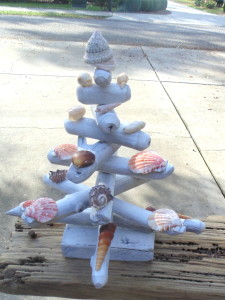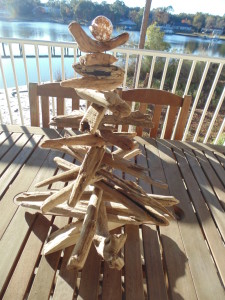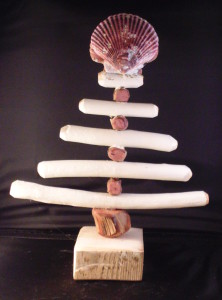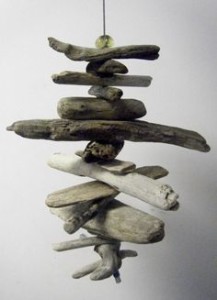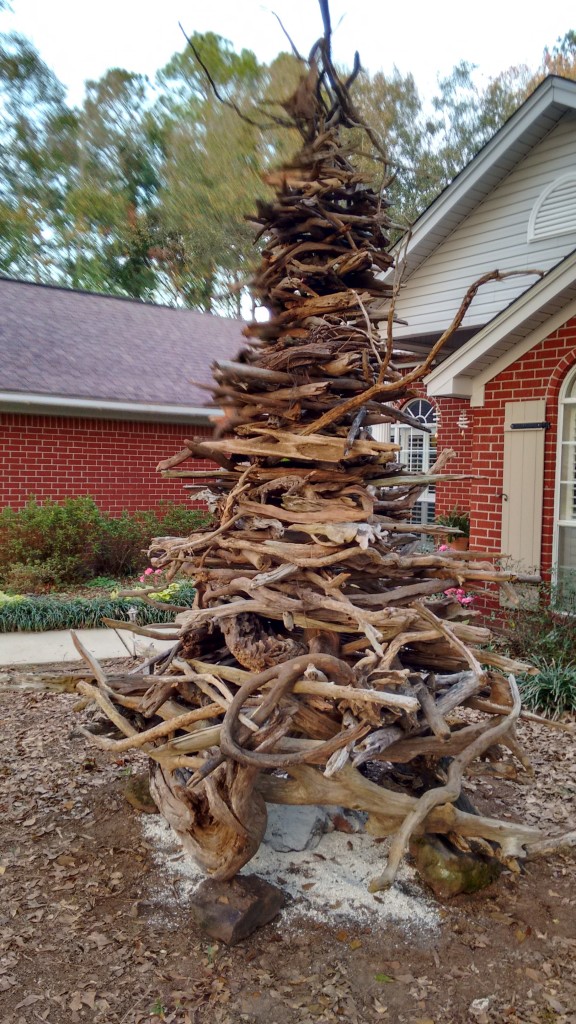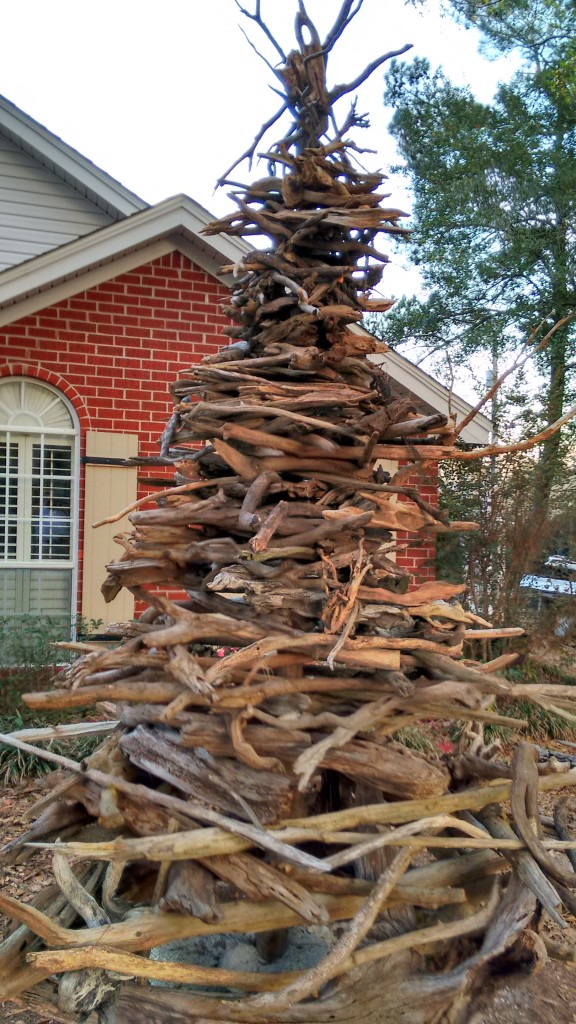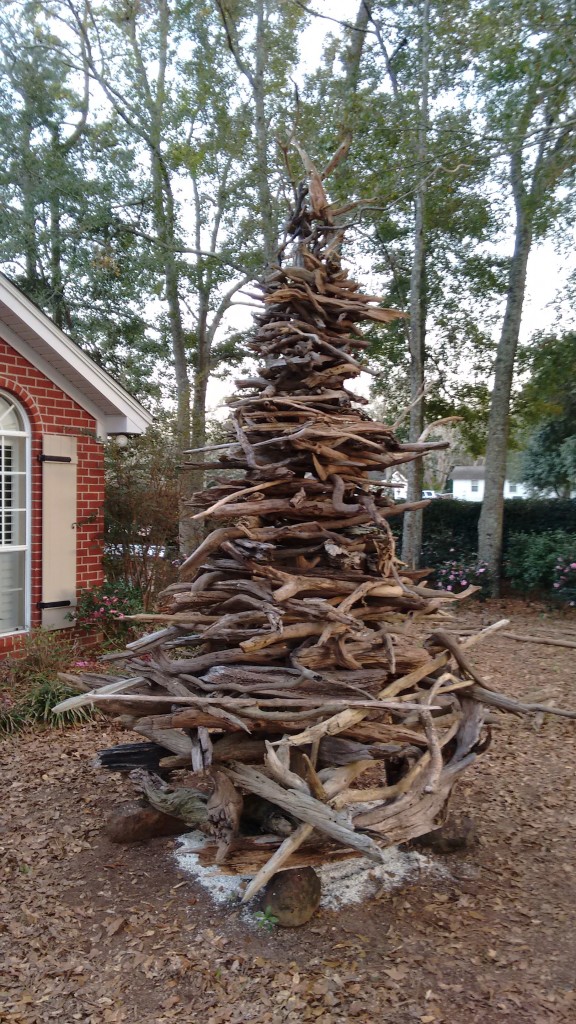Driftwood Tree 2015 – Fairhope, AL
Driftwood Tree – 2015 – In Progress
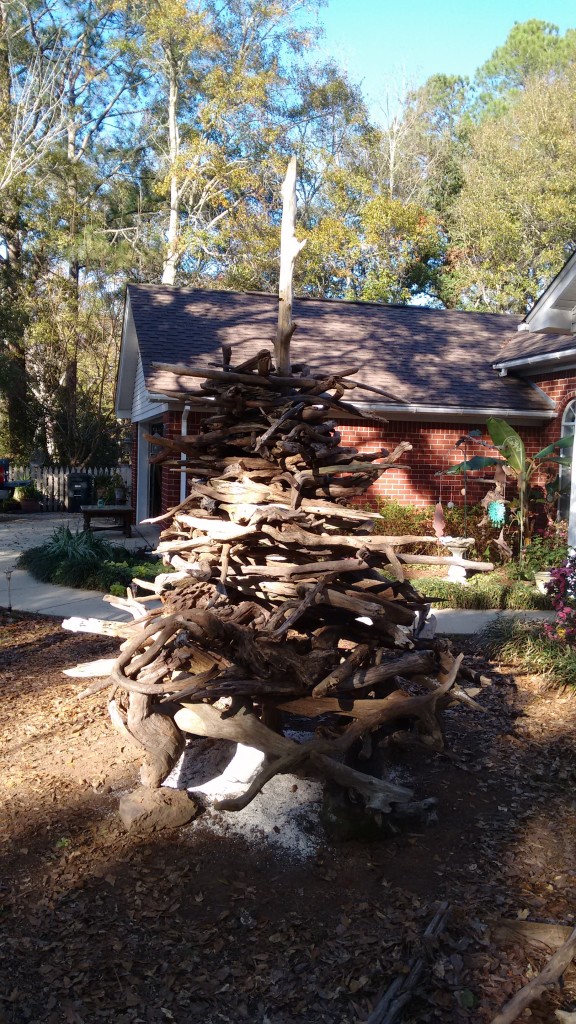
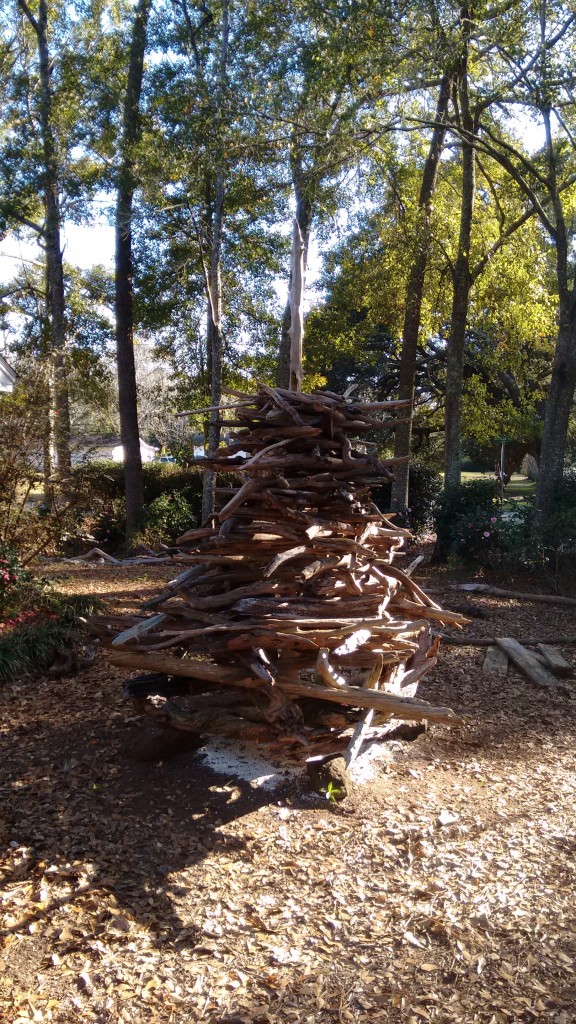
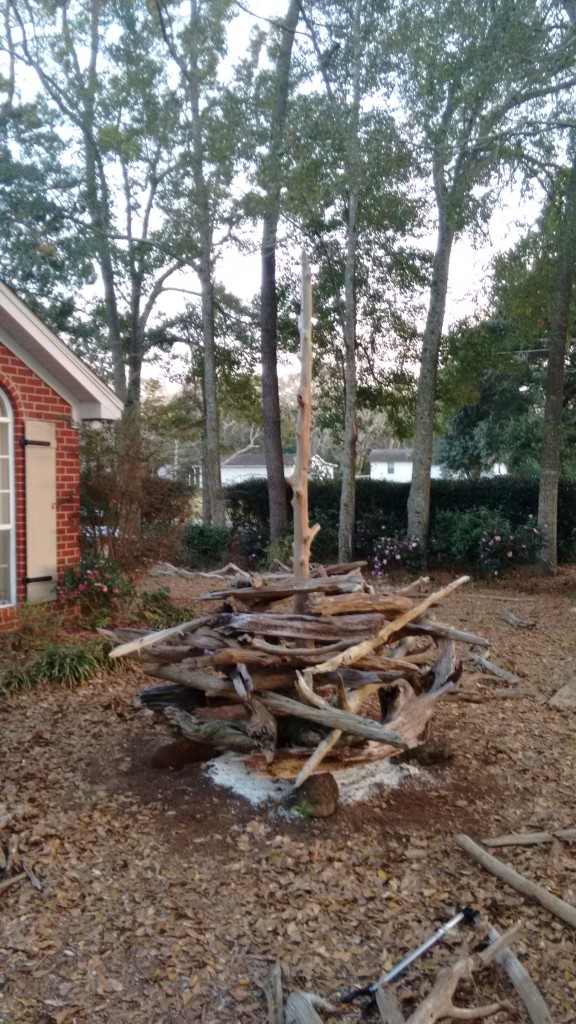
Driftwood Tree Foundation
This past weekend I took down my eight foot tall driftwood tree and rebuilt it. I had noticed a few deteriorated pieces of driftwood that I wanted to replace. In addition, I wanted to put some large rocks on the ground for the bottom pieces of driftwood to rest on. I also spread crushed oyster shells underneath the tree. On the previous trees, wood had been put down directly on the ground. Raising them up on the rock foundation will keep them dry and prevent termites from getting in them. The oyster shells discourage insects, mold, and mildew. This hasn’t been a big problem with my other driftwood trees, but I decided it would be better to eliminate the possibility of termites having a free lunch.
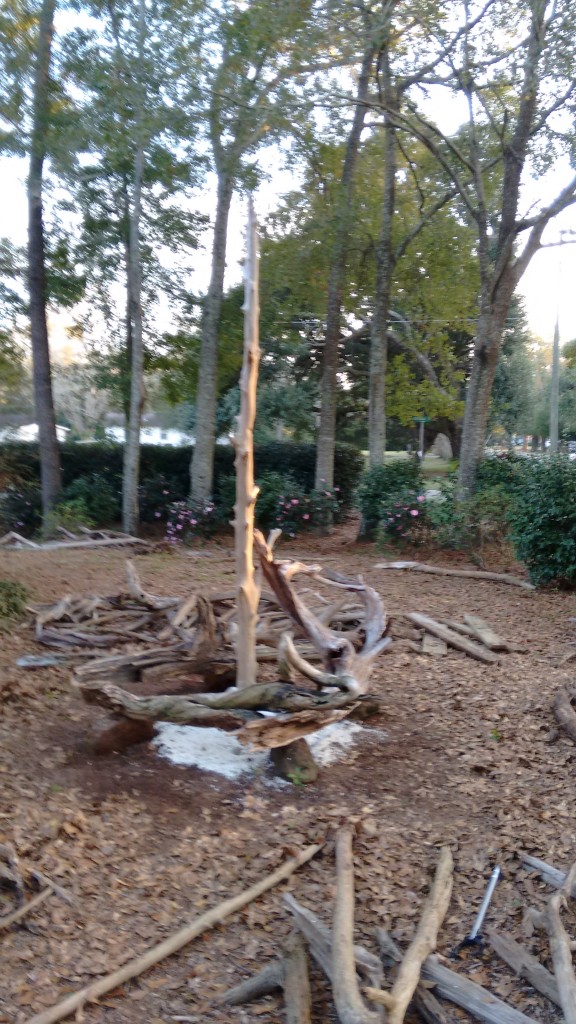
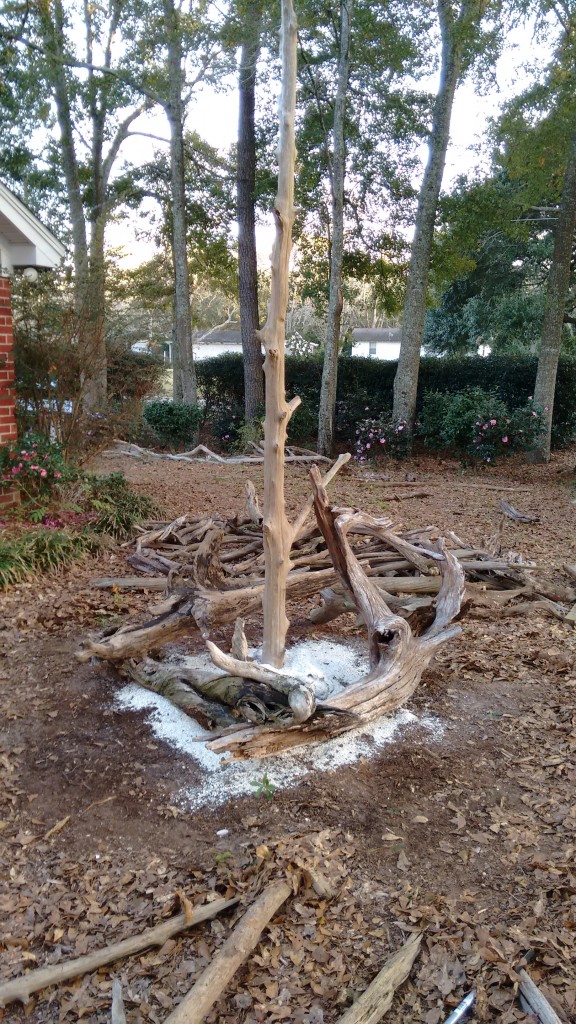
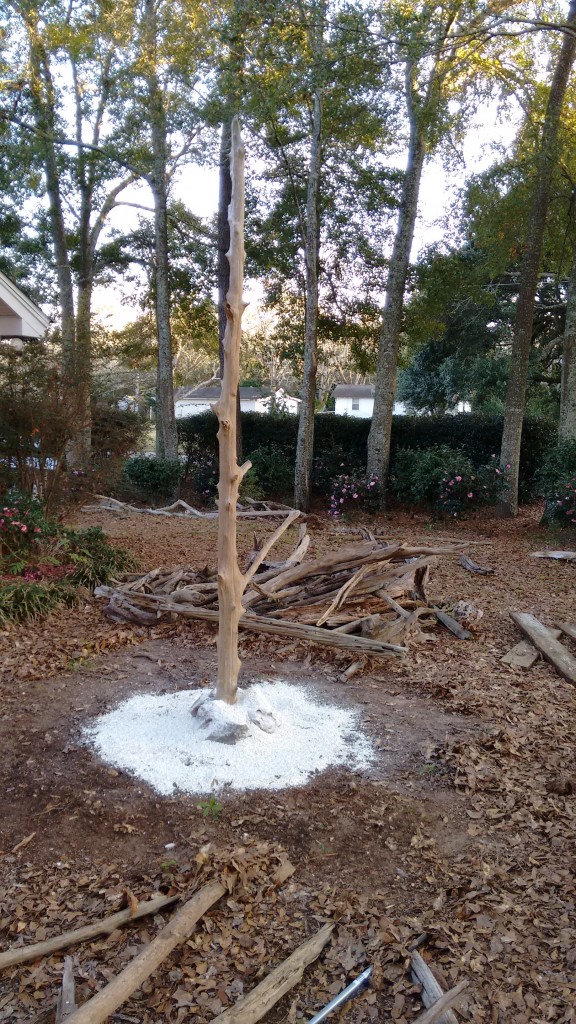
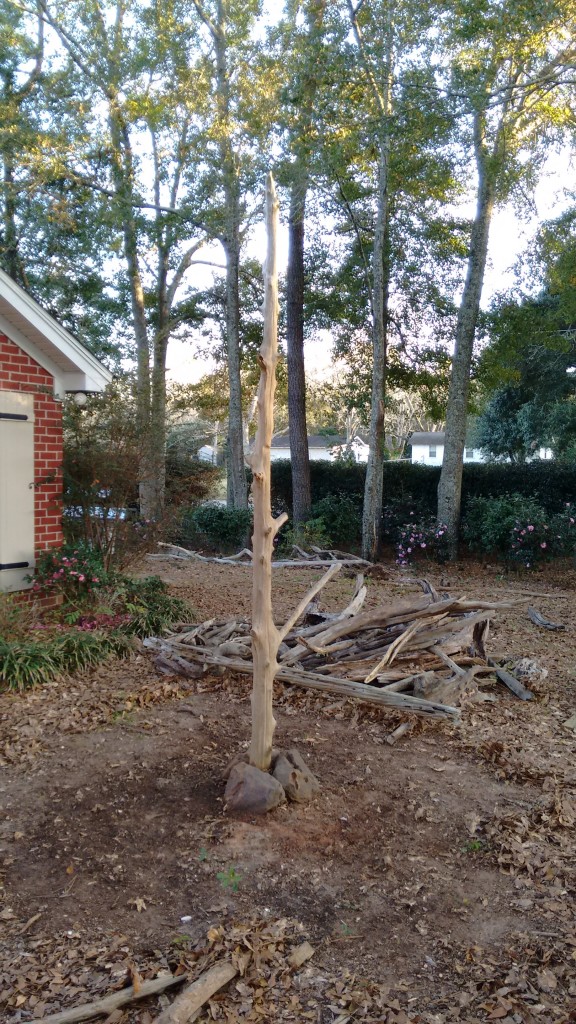
Make a Driftwood Tree Sculpture
Sept. 15, 2015, 1-3:00 PM at the Daphne Art Center.
1704 6th St., Daphne, AL – Directly behind Daphne City Hall
Tuition : $9.00 – Pay ESILL by check
Supply fee – $10.00 – Pay Dan Therrell cash or chck
All materials will be supplied.
To reserve a seat for this class, please complete & mail the ESILL Course Registration Form.
1) Use the pre-printed registration form if you have one.
If not, you can download and print it.
2) Fill in the information requested.
3) Mail the Registration Form , along with your check for $9.00 tuition, made payable to “ESILL“to the address below.
4) The $10 supply fee (per tree)must be paid separately. Please enclose a check payable to Dan Therrell, or bring your payment to the the class.
Address for sending Registration Form:
Dan Therrell
112 N Ingleside ST.
Fairhope, AL 36532
For more ESILL classes, see the Course Summary.
Craftsmanship
I have a deep appreciation for craftspeople who make everyday things of necessity and some of art.
Hand-crafted items tend to endure the test of time, by intention of design, or accidentally. The Gulf Coast shares the tradition of self reliance described in a phrase I often heard when I was younger:
“Use it up, wear it out, make it do, or do without.”
Recycling was not a term we used, but it was an everyday practice to not throw away things which could possibly be repaired, nor things which could be used for another purpose.
